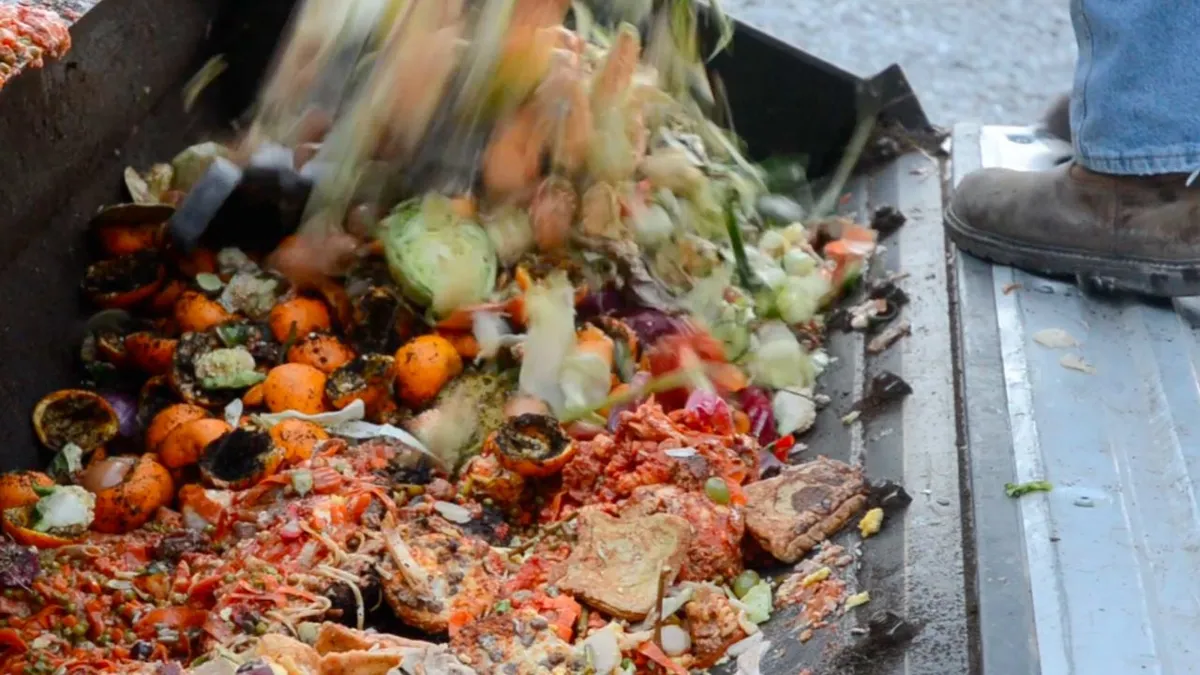Dive Brief:
- A bill approved by the New Jersey Senate's Environment and Energy Committee last week would require large commercial establishments such as distribution warehouses, conference centers, hospitals, casinos, retail stores and restaurants to divert their organic waste for recycling, as reported by NJ Spotlight.
- As currently written, S-771 would require any large generator located within 25 miles of an authorized organics recycling facility to divert their material for processing. Establishments which generate an average projected volume of 104 tons or more of waste would start in 2019 and generators of 52 tons or more per year would start in 2022.
- Municipalities with active authorized food waste recycling facilities would receive economic benefits of at least $0.50 per ton of all material accepted, to be paid by facility operators. A Food Waste Recycling Market Development Council, consisting of 12 top state officials, would also be formed to assess markets for energy and products created from this material.
Dive Insight:
New Jersey spent $3 million last year promoting biomass energy and a study from Rutgers University highlighted big potential from processing more organic material through these various methods. This concept follows similar state laws in Massachusetts, Connecticut, Vermont and California, and also aligns with the federal goal of reducing food waste 50% by 2030. The details in each state vary, though the approach of starting with the largest commercial waste generators first is similar.
As has been seen in New York, where the city has enacted similar requirements, adequate processing capacity is often one of the main challenges in making these programs work. Community opposition to hosting these facilities can be common and the addition of an economic benefit agreement in this New Jersey law is an interesting approach. Both Los Angeles and New York are moving toward franchise collection systems which officials say could help spur the necessary investments in this infrastructure while also increasing diversion rates for organic material.
This is the latest in a series of waste-related bills that have come up in New Jersey in 2016. The most recent examples involved e-waste and organized crime. S-771's fate may be uncertain based on Governor Chris Christie's track record of vetoing other legislation which aimed to increase the recycling responsibilities of certain businesses.















